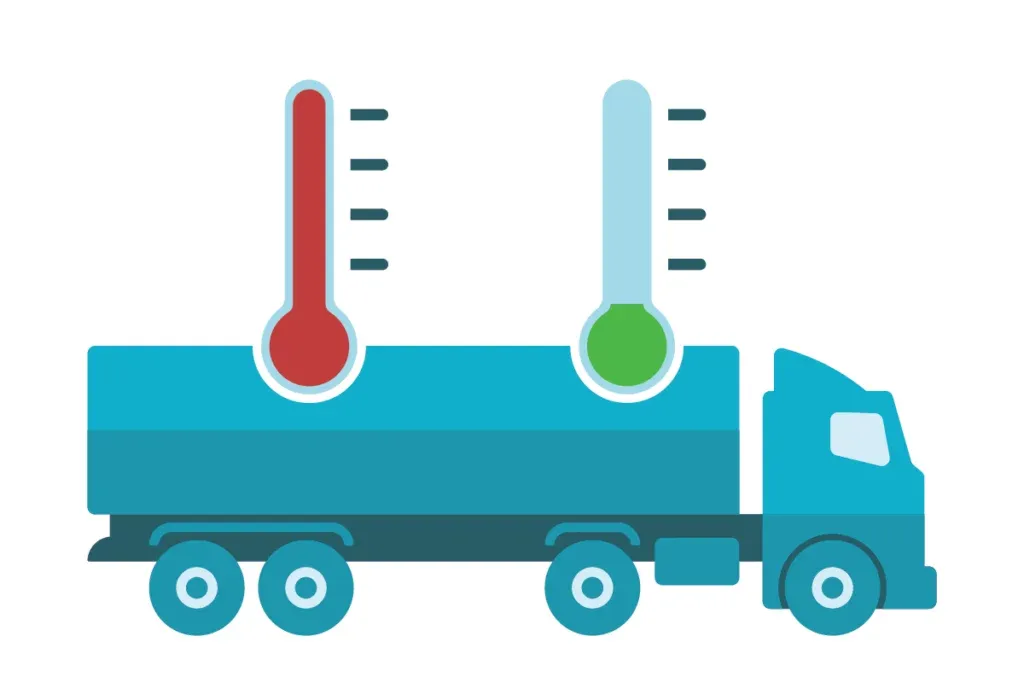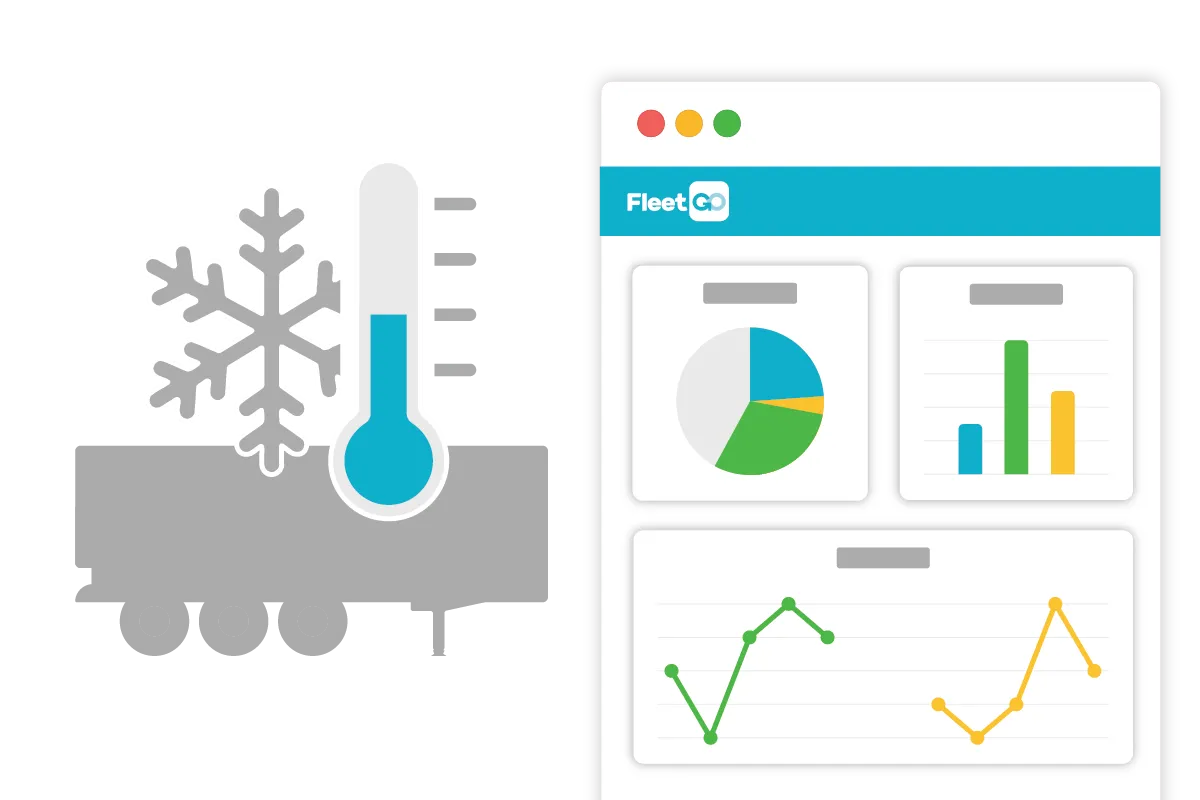For companies that make use of refrigerated vehicles, the use of a good temperature monitoring system in fleet vehicles can save thousands per year in spoiled goods. These systems keep detailed and accurate records of temperatures in vehicles and can help prevent lost loads. In addition, they can help businesses maintain a higher quality of service for their customers.

What are Temperature Monitoring Systems?
As the name suggests, these systems are for the monitoring and reporting of temperatures concerning goods in temperature-controlled vehicles. In practice, this usually means a refrigerated vehicle, but it equally applies to any vehicle that is designed to carry goods that need to be stored at a specific temperature.
For the most part, the goods in question will be perishable foods that need to be kept within a certain temperature range to prevent spoiling. However, these could also include things such as sensitive equipment or even animals. In most cases, failure to keep the goods within the required temperature range will result in lost inventory and, as a result, lost money.
Remote Temperature Monitoring
Gain real-time visibility into all your temperature-controlled assets, ensuring precise control throughout the entire transportation process.
Real-time temperature data from your fleet

Temperature Monitoring Systems in Logistics
These systems are usually temperature wireless monitoring systems, allowing for the real-time monitoring of temperatures from a central location, regardless of where a vehicle is. This technology not only enables an organisation to know what is going on with its products at all times, but it also allows for more efficient logistics. This is because the driver will not need to worry about periodically checking the goods being stored or transported in their vehicle.
A wireless temperature monitoring system carries even greater importance against the background of increasing food scarcity and environmental concerns. It is estimated that around 12% of all food waste happens during distribution. In addition to being responsible for billions in losses, this is a major issue in the context of poverty and the environmental problems caused by the production of food.
A wireless temperature monitoring system in the UK can help companies avoid losing stock due to temperature changes during transit. However, is it really necessary to acquire a wireless system?
Non-Wireless Temperature Monitoring Systems
Having remotely monitored temperature systems in the logistics chain can help make things more efficient since the driver doesn’t need to check on the status of their goods under refrigeration, but there’s more to it than just productivity.
Realistically, drivers can only perform so many checks and still get a good amount of work done. Every minute that they are not checking the temperature of their goods is a minute that things can go wrong. Depending on the goods beings transported, as little as a 1° C temperature change can be enough to spoil thousands-worth of products. Even if the products themselves are still good, there are various regulations regarding the storage and transportation of food products that can render the goods unusable.
With wireless monitoring systems, the organisation will instantly be aware of any problems regarding the temperature of their vehicles, enabling them to take action before any of the goods get spoiled.
What Uses Does Temperature Monitoring Have in Logistics
This post has been very food-centric, but as mentioned above, there are other types of goods that require temperature monitoring. Some of the most common goods that require temperature-controlled storage and transportation include the following:
- Perishable foods
- Flowers
- Pharmaceuticals
- Antiques
There may also be other goods that are far less common. Regardless of the temperature-sensitive content in the van, refrigeration failures can be very costly. This highlights the benefits of a temperature monitoring system and van tracking, both of which far outweigh the expense of installing them.
Sources:
Disclaimer
This content is provided for informational purposes only and is not meant to be an endorsement or representation by FleetGO.com or any other party. This information may contain inaccuracies or typographical errors, despite our efforts to ensure accuracy. FleetGO.com accepts no responsibility or liability for any errors or omissions, and is not responsible for the contents of any linked website or any link contained in a linked website. Please refer to our full disclaimer for more details.


